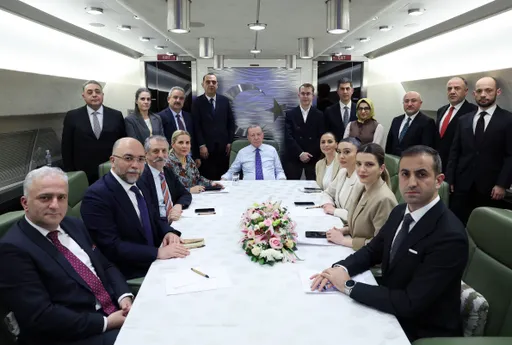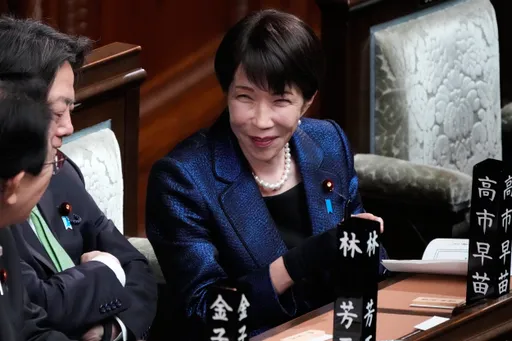As the war in Syria nears its end, the US and Israel are making efforts to develop a consensus among all the parties involved in the conflict to agree on one thing: kicking Iran out of Syria.
This aim became more visible last year when Israel asked the Russian President Vladimir Putin, whose air force has supported the Syrian regime since 2015, and the US President Donald Trump to remove Iran from Syria.
Despite pressure on the Syrian regime from other parties involved in the war Bashar al Assad visited Iranian Supreme leader Ayatollah Ali Khamenei on February 25, for the first time in nearly eight years.
For Thomas Pierret, Senior Researcher at the French National Center for Scientific Research (CNRS) the meeting has a clear message: business as usual, if not more business than usual.
“It's an attempt to countering rumours about the loosening of their relationship...Russians particularly tried to convey that idea that they’re making Assad less dependent on Iran, so the relationship might be less strong than it used to be,” Pierret tells TRT World.
For eight years, Iran has been the most loyal ally to the Assad regime as it provided financial and military backing on the ground. Along with Russian support which came later in 2015, foreign assistance helped the Syrian regime recapture the large territories that the opposition forces once occupied in Syria.
The commander of the Iranian Revolutionary Guard's Quds Force, Qasem Soleimani, who directed Iran’s foreign policy in Syria was also present at the Assad’s meeting with Khamenei.
To counter Iranian influence in the country, Israel has been conducting hundreds of airstrikes against Iran in the past couple of years. Sharing the same aim, along with defeating Daesh - an issue that emerged in 2014 - Israel’s ally the US also sent its troops to the country in late 2015.
However, on December 19 last year, the US announced its plans to withdraw from Syria, in a step that raised concerns in Israel. Almost a week later, Israel ramped up its attacks on Iran-backed militias in Syria.
“These repeated Israeli attacks have been giving the impression that Iran is no longer safe in Syria and when you're not safe people might think that you're on the way out. So this meeting is also re-asserting the strength of that relationship,” Pierret says.
Will GCC countries be able to counter Iran in Syria?
Some Arab countries meanwhile started to improve relations with the Syrian regime. The United Arab Emirates (UAE) reopened its embassy in the country while a week later Bahrain said it would follow suit. After years of supporting rebels in the country, the countries indicated that taking such a step was to counter Iranian influence in Syria.
Pierret is sceptical of the anti-Iranian dimension of the UAE’s approach. He says that for these countries either improving relations with Assad or supporting the rebels against him has been a matter of practical choice.
Pierret says the UAE was never really interested in toppling Assad, pointing out that their bigger concern in Syria would be Qatar and Turkey, rather than Iran.
“It played the game of supporting the rebels for a simple reason, which was that at some point the rebels seemed about to win the war...and wanted to have some influence over them,” Pierret says.
“The UAE is also interested in reinforcing this sort of authoritarians solidarity across our region, which basically like the Arab League pre-2009, 2011- it was sort of a club of dictators.”
In May 2017, the leaders of some Arab Gulf Countries, including the UAE, Saudi Arabia and Bahrain, came together with the US in Riyadh at a summit where they declared a fight against Iran. As an outcome of the summit, five Gulf countries suspended their diplomatic relations with Qatar, the nation that they accused of terrorism. Qatar, an ally of Turkey, which has been supporting the mainstream rebel groups in Syria against Assad since the beginning of the war, strongly denied the accusations.
After his withdrawal decision, Trump ensured that his aim to counter Iran wasn’t over. The US renewed its intentions to counter Iran by partly reversing the withdrawal decision and announced that it was keeping 200 troops as a peacekeeping force in the country. Senator Lindsey Graham applauded the decision, saying that it would prevent Iran from filling a power vacuum.
It came after a US-organised Middle East conference in Poland, which is widely perceived as an attempt to isolate Iran. The conference brought Arab and European leaders together with Israel. Assad’s other ally, Russia, however, refused to participate in the event.
Pierret says he doesn't think that anyone will manage to kick Iran out of Syria.
“That would be entirely possible with a fully fledged military operation by the US. But of course, they would have Russia in their way. It's not a realistic scenario,” Pierret says.
“Pressuring Syria in one way or another, or trying to the track Assad away from Iran -I think it’s all wishful thinking.”























